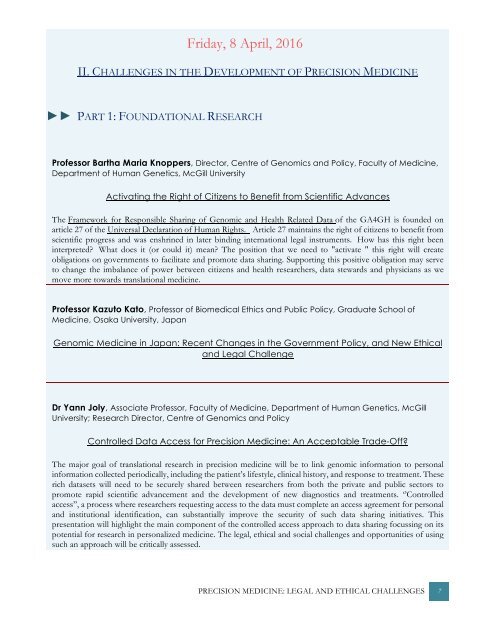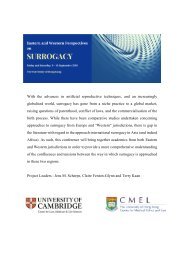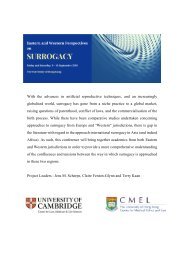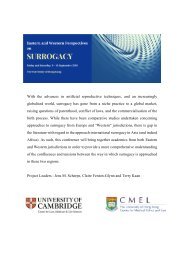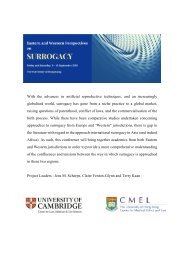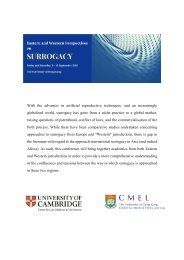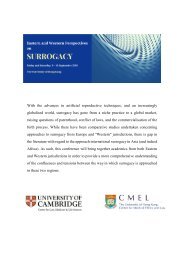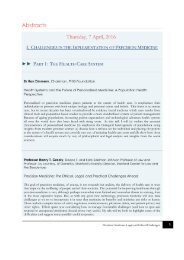PM conference programme_2016.04.05_concise_Clean(Latest)
Create successful ePaper yourself
Turn your PDF publications into a flip-book with our unique Google optimized e-Paper software.
Friday, 8 April, 2016<br />
II. CHALLENGES IN THE DEVELO<strong>PM</strong>ENT OF PRECISION MEDICINE<br />
►► PART 1: FOUNDATIONAL RESEARCH<br />
Professor Bartha Maria Knoppers, Director, Centre of Genomics and Policy, Faculty of Medicine,<br />
Department of Human Genetics, McGill University<br />
Activating the Right of Citizens to Benefit from Scientific Advances<br />
The Framework for Responsible Sharing of Genomic and Health Related Data of the GA4GH is founded on<br />
article 27 of the Universal Declaration of Human Rights. Article 27 maintains the right of citizens to benefit from<br />
scientific progress and was enshrined in later binding international legal instruments. How has this right been<br />
interpreted? What does it (or could it) mean? The position that we need to "activate " this right will create<br />
obligations on governments to facilitate and promote data sharing. Supporting this positive obligation may serve<br />
to change the imbalance of power between citizens and health researchers, data stewards and physicians as we<br />
move more towards translational medicine.<br />
Professor Kazuto Kato, Professor of Biomedical Ethics and Public Policy, Graduate School of<br />
Medicine, Osaka University, Japan<br />
Genomic Medicine in Japan: Recent Changes in the Government Policy, and New Ethical<br />
and Legal Challenge<br />
Dr Yann Joly, Associate Professor, Faculty of Medicine, Department of Human Genetics, McGill<br />
University; Research Director, Centre of Genomics and Policy<br />
Controlled Data Access for Precision Medicine: An Acceptable Trade-Off?<br />
The major goal of translational research in precision medicine will be to link genomic information to personal<br />
information collected periodically, including the patient’s lifestyle, clinical history, and response to treatment. These<br />
rich datasets will need to be securely shared between researchers from both the private and public sectors to<br />
promote rapid scientific advancement and the development of new diagnostics and treatments. ‘’Controlled<br />
access’’, a process where researchers requesting access to the data must complete an access agreement for personal<br />
and institutional identification, can substantially improve the security of such data sharing initiatives. This<br />
presentation will highlight the main component of the controlled access approach to data sharing focussing on its<br />
potential for research in personalized medicine. The legal, ethical and social challenges and opportunities of using<br />
such an approach will be critically assessed.<br />
PRECISION MEDICINE: LEGAL AND ETHICAL CHALLENGES 7


